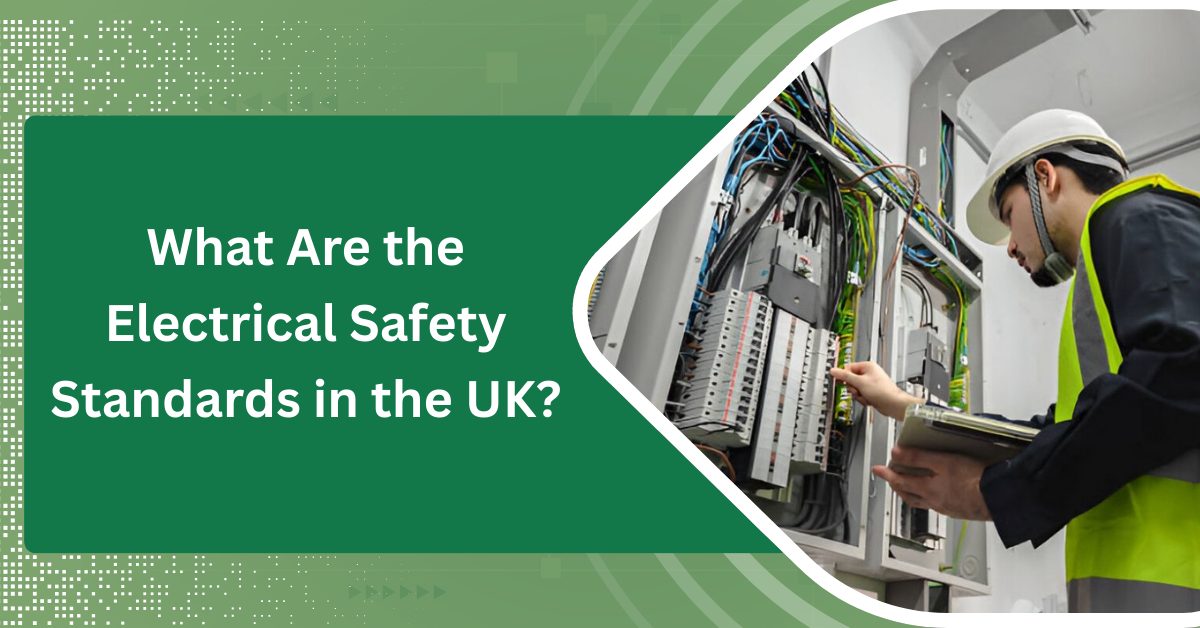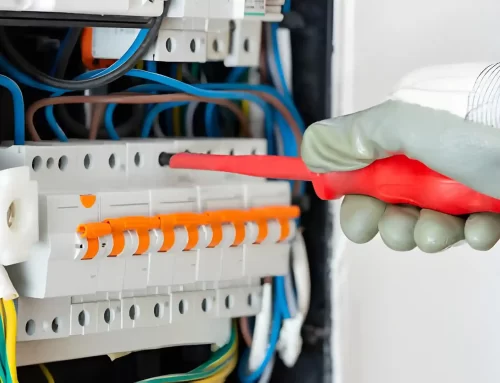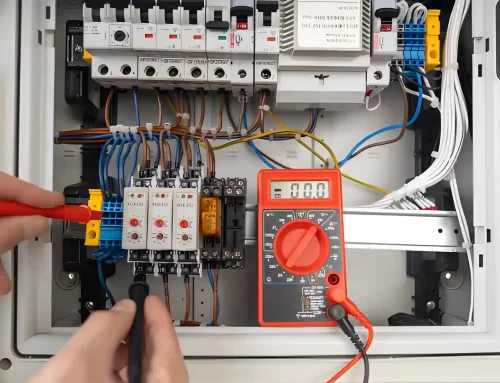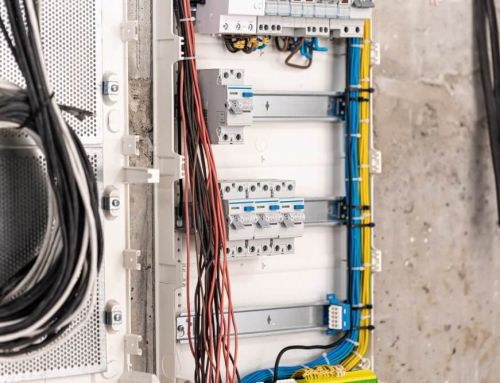
You’re likely aware that maintaining electrical safety is crucial, but do you know how strictly it’s regulated in the UK? The cornerstone of British standards, the BS 7671, dictates meticulous guidelines that all installations must follow to ensure safety and efficiency. Compliance isn’t just encouraged; it’s enforced by law, underscoring the critical nature of these standards in protecting people and properties. But how are these regulations adapted to keep up with technological advancements and the increasing demands of modern electrical loads? Let’s explore how these standards are evolving to meet future challenges. Let’s understand the Electrical Safety Standards in the UK.
Overview of UK Electrical Standards
UK electrical standards, crucial for ensuring safety and compliance, encompass a comprehensive set of regulations and guidelines.
You’ll find that these standards have evolved significantly, reflecting the historical context of technological advancements and safety insights.

As you delve deeper, comparing these standards internationally highlights the UK’s rigorous approach. Countries around the globe adopt varying frameworks, and the UK model is often viewed as a benchmark, particularly noted for its stringent enforcement and adaptive nature to emerging technologies.
Understanding these nuances prepares you to comply with current regulations and equips you with the knowledge to anticipate future trends.
Mastery of this complex landscape ensures you’re not just following rules—you’re actively contributing to a safer, more efficient electrical environment.
Understanding the BS 7671
Diving into the specifics of the BS 7671, you’ll find it’s the key standard governing the design, installation, and inspection of electrical systems in the UK.
This comprehensive framework ensures safety and efficiency, rooted deeply in technical and regulatory requirements.
Keeping abreast of the BS 7671 updates is crucial; these adaptations reflect the latest technological advancements and safety insights, maintaining alignment with international electrical standards.
You must understand that compliance isn’t merely advisable—it’s mandatory.
BS 7671 enforcement is robust, with stringent checks and penalties for non-compliance.
You must integrate these standards into your practice to not only uphold legal compliance but also guarantee the safety of the electrical installations you’re responsible for.
Role of the Health and Safety Executive
The Health and Safety Executive (HSE) plays a critical role in enforcing electrical safety standards across various sectors within the UK. As you navigate compliance, understand that HSE’s mandate extends beyond mere oversight.
They rigorously enforce health regulations, ensuring that all electrical work adheres to established safety norms. This includes monitoring the implementation of safety training programs essential for qualifying professionals in handling electrical systems.
Your adherence to these standards is paramount. HSE’s interventions often involve inspections, audits, and even sanctions to enforce compliance.
Their proactive approach to educating and training workers underscores their commitment to minimizing electrical hazards. Thus, staying abreast of HSE guidelines not only ensures legal compliance but also significantly enhances safety protocols within your operations.
Requirements for Domestic Installations
Shifting the focus to domestic installations, you must meet stringent regulatory requirements set forth by UK legislation to ensure electrical safety within homes. Adherence to these standards not only safeguards residents but also ensures compliance with national safety protocols.

Here are the critical aspects you need to consider:
- Wiring Regulations: Follow the latest edition of the BS 7671 Requirements for Electrical Installations (IET Wiring Regulations) to guarantee all wiring systems and fixed electrical equipment are securely installed and maintained.
- Periodic Safety Inspections: Conduct regular safety inspections at least every ten years for owned homes, and every five years for rented properties, to identify and remedy potential hazards.
- Circuit Protection: Install appropriate circuit breakers and RCDs (Residual Current Devices) to prevent electrical overloads and shocks.
- Certification: Ensure all electrical work complies with Part P of the Building Regulations, requiring certification from a qualified electrician for major installations or modifications.
These steps are essential to maintaining a safe electrical environment in your home.
Standards for Commercial Buildings
While standards for domestic installations focus on the safety of residents, commercial buildings require a broader set of regulations to address more complex electrical systems and higher usage demands.
You’ll need to familiarize yourself with the specific wiring regulations that are more stringent and comprehensive for commercial spaces. These include enhanced measures for energy efficiency and the deployment of high-capacity wiring systems to safely handle increased electrical loads.
The UK’s wiring regulations, often updated to incorporate the latest safety and efficiency standards, dictate meticulous practices for installation, operation, and maintenance.
As a business owner or facility manager, ensuring that your building’s electrical systems are up to code not only promotes safety but also optimizes operational efficiency, which is crucial in managing operational costs and environmental impact.
Certification and Compliance Processes
Ensuring your commercial building meets UK electrical safety standards involves a rigorous certification and compliance process.
You’ll need to be thorough and proactive to navigate this multifaceted landscape effectively. Here’s what you must do:
- Select an Accredited Certification Body: Choose from recognized certification bodies authorized to assess compliance with UK electrical regulations.
- Prepare for Initial Assessment: Gather all necessary documentation and ensure your systems are compliant with the latest safety standards.
- Undergo Compliance Audits: Scheduled and surprise compliance audits will verify ongoing adherence to standards.
- Maintain Certification: Keep all electrical systems updated and re-certify periodically as required by UK law.
This structured approach ensures your facility not only meets but also maintains the highest standards of electrical safety.
Impact of Non-Compliance
Failing to comply with UK electrical safety standards can lead to severe consequences for your commercial building. You could face not only substantial financial penalties but also serious legal repercussions. Enforcement actions might include mandatory shutdowns or operational restrictions, severely impacting your business continuity.
Injury consequences due to non-compliance can lead to both direct and indirect costs from medical expenses, compensation, and potential lawsuits. Insurance implications are also significant; your coverage could be voided, leaving your business exposed to further financial losses. Moreover, the reputation damage from publicized non-compliance can deter potential clients and business partners, affecting long-term profitability.
| Consequence | Direct Impact | Long-term Effect |
|---|---|---|
| Financial Penalties | Immediate fines | Increased insurance premiums |
| Legal Repercussions | Court cases | License Restrictions |
| Injury Consequences | Compensation claims | Operational downtimes |
| Reputation Damage | Client loss | Reduced market position |
Future Trends in Electrical Safety
As electrical safety standards evolve, you’ll notice an increasing emphasis on integrating advanced technology to enhance compliance and safety measures.
Here are the key trends to watch:
- IoT Integration: Emerging technologies like the Internet of Things (IoT) are revolutionizing monitoring and control systems, allowing for real-time safety analytics.
- AI Predictive Maintenance: Artificial intelligence will increasingly predict potential system failures before they occur, ensuring proactive maintenance.
- Regulatory Updates: Expect frequent updates in regulations to keep pace with technological advancements, ensuring that safety standards aren’t only met but exceeded.
- Augmented Reality Training: The use of AR will become more prevalent for training purposes, providing workers with realistic, safe environments to learn and practice.
These developments will significantly enhance your ability to maintain stringent safety standards in dynamic environments.
Conclusion
As you navigate UK electrical safety standards, remember that adhering to BS 7671 is crucial. Ensure your installations—whether domestic or commercial—meet these guidelines to avoid legal pitfalls and maintain safety. Regularly engage with certified professionals for inspections and stay updated on any changes in regulations. Non-compliance not only risks penalties but can compromise safety. Staying informed and proactive in compliance will safeguard your interests and contribute to overall electrical safety advancements.
About the Author: LandlordCertificate
Related Posts
Get Social
Recent Posts
- Fire Risk Assessment Report London: Essential Steps and Legal Requirements
- Reliable Gas Safety Inspection by Gas Safe Registered Engineers
- The Role of Fire Extinguisher Inspection in Fire Risk Management
- How to Stay Compliant with Emergency Lighting Test Certificate Rules
- EICR London Fault Codes Explained: What C1, C2, and C3 Really Mean for Landlords













